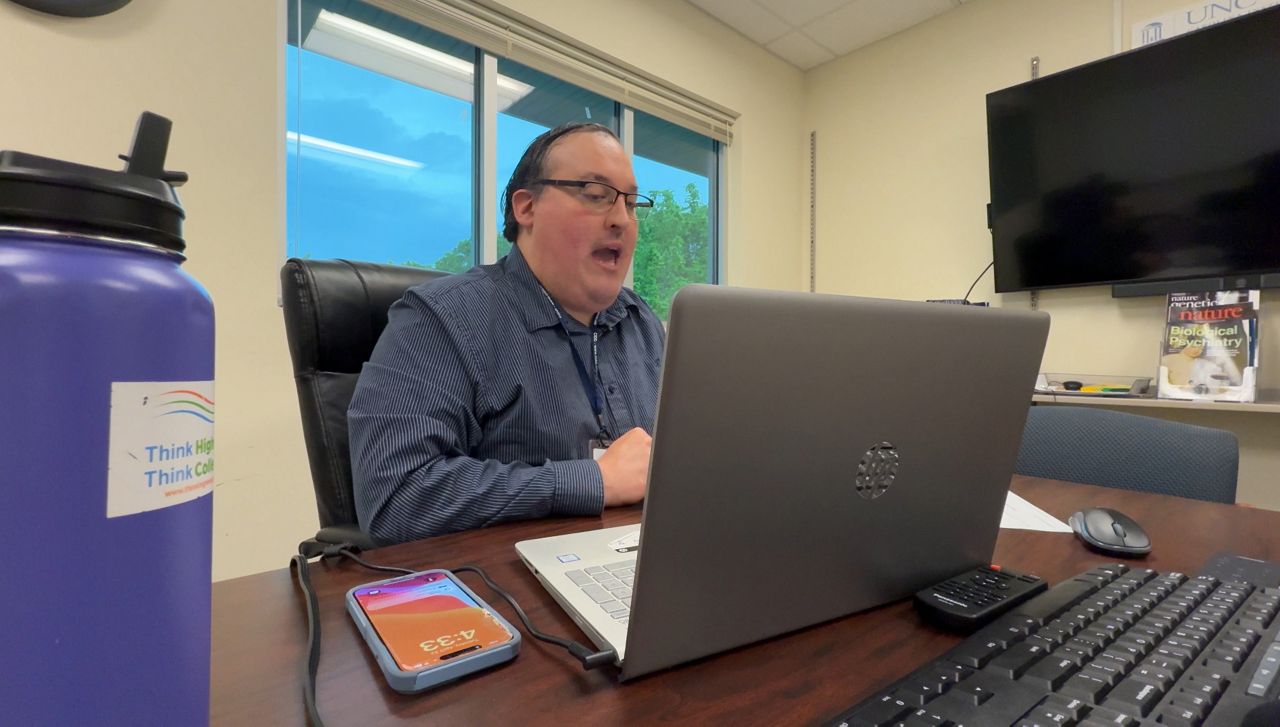‘We’re in a crisis’: N.C. lawmaker, advocates call for disability support in budget
BY Marshall Keely
PUBLISHED 3:30 PM ET May 15, 2025
RALEIGH, N.C. — The North Carolina General Assembly is in the midst of budget season, and one group of people fear they’re being left out. One North Carolina woman has become an outspoken figure in the fight to get people living with intellectual or developmental disabilities more help.
Wilmington native Cheryl Powell has dedicated her life to helping others.
Now, she’s asking for help. She wants the North Carolina General Assembly to add more funding to the Innovations Waivers program, which pays for “direct support professionals” to help people living with intellectual or developmental disabilities.
“We are in a crisis,” she said.
After graduating from UNC Wilmington, Powell looked for a job using her degree in social work but had no luck.
She lives with cerebral palsy and said she wasn’t hired because she couldn’t drive. For a short time, she found a job as a direct support professional, where she helped people living with disabilities.
“Working with individuals with disabilities is not necessarily an easy job,” she said.
Powell is familiar with some of the challenges people can face.
Since her marriage, her husband William has been her primary caretaker, helping her navigate the stairs outside of their Wilmington apartment or lifting her into the couple’s pickup truck for trips.
It’s the kind of assistance direct support professionals across the state can provide, offering thousands of people a chance to live fuller lives.
“I want to be able to go out and do things. I want to go to concerts. I love Britney Spears. I want to do things like that,” Powell said. “If you don’t have someone that can help you with these things, then you don’t have, what many would say is a good quality of life.”
She said there are precious few professionals in the state and support hours are hard to come by.
‘Critical’ support
“This is something that we now understand is critical,” said Rep. Zack Hawkins, a Democrat representing Durham County.
Hawkins is chairman of the IDD Caucus in the North Carolina General Assembly. The group is made up of members from both chambers at the General Assembly, Republicans and Democrats who focus on issues facing people with intellectual and developmental disabilities.
He’s also a father who said his sons would benefit from direct support, if it was available.
“We absolutely have tried, tried and failed, with our sons with autism to find direct support professionals,” he said.
Powell appeared in front of Hawkins and the rest of the IDD Caucus in March, asking lawmakers to help solve the shortage and improve training.
“I told them that DSPs are not paid the way they should be, and that there’s not enough of us,” Powell said.
Low wages
Lawmakers said most direct support professionals make $12 to $14 an hour, a wage Powell said is unlivable.
Hawkins is among the legislators pushing for a wage increase, with a goal of reaching $25 an hour.
Powell said DSPs often have someone’s life in their hands, and their pay should reflect the necessary skill level and the importance of the role.
“I believe that you’d have more people be willing to go into this field and more people to be there to fill these hours that people get,” she said.
Hawkins is among the parents pressing for more NC Innovations Waivers in the state, money delivered through Medicaid to help those in need pay for DSPs.
The waitlist is almost 19,000 people long and it’s growing.
Gov. Josh Stein proposed opening an additional 200 Innovation Waiver slots in his budget proposal, a suggestion that did not appear in the Senate version of the budget.
“We’re willing to put all options on the table because my Adam is 8 now, and we don’t want him to be 18 before he gets on,” Hawkins said.
Right now, parents and spouses are often left to provide care by themselves, sometimes keeping them out of the workforce.
‘Missing out’
Kenneth Kelty, a podcaster in Chapel Hill, waited on the list for 14 years before he got a slot in the program.
“I am a pretty independent person, but I still need help with being able to pay bills, and I still would like to be able to have someone take me out in the community,” he said.
Kelty’s waiver means he lives in a rent-controlled apartment and has help getting around, offering him freedoms he’d otherwise lose.
“If I did not have a DSP come or the waiver, I might unfortunately be stuck at home or a more segregated placement,” Kelty said.
But he’s still talking to many in his community who haven’t yet been afforded the same opportunities.
“They’re missing out on meaningful experiences,” he said.
His ask to lawmakers, for himself and for the people he’s meeting, is simple.
“I just want to be able to live my life and not have to worry about getting services or what could happen if I don’t,” Kelty said.
William Powell worries what would become of his wife if he’s not around, concerned she could end up in a nursing facility or a group home without more help.
“It’s just kind of like a last resort. They don’t get taken care of like they’re supposed to, and it’s just because you’ve got one person taking care of like 20 to 30 people,” Powell said.
“The more you go into these levels of care, the more freedoms you lose,” Cheryl Powell added.
Hawkins is looking for a $30 million funding increase to improve DSP pay in this year’s budget.
The Senate did not include any increase in the budget it passed.
“There are tax cuts, there are other things that we potentially have to fund and we have to fight for our way in that,” Hawkins said.
Cheryl Powell’s fight is far from finished.
“Disability is everywhere so when we get sort of left out of budgets and things, it’s hurtful. There’s a lot of people fighting, and I’ve been doing it for over 10 years, and I’ll probably do it until my last breath,” she said.
People in the IDD community are still hopeful some of the changes they’re looking for could end up in the final budget.
The house has yet to pass its version of the budget.

